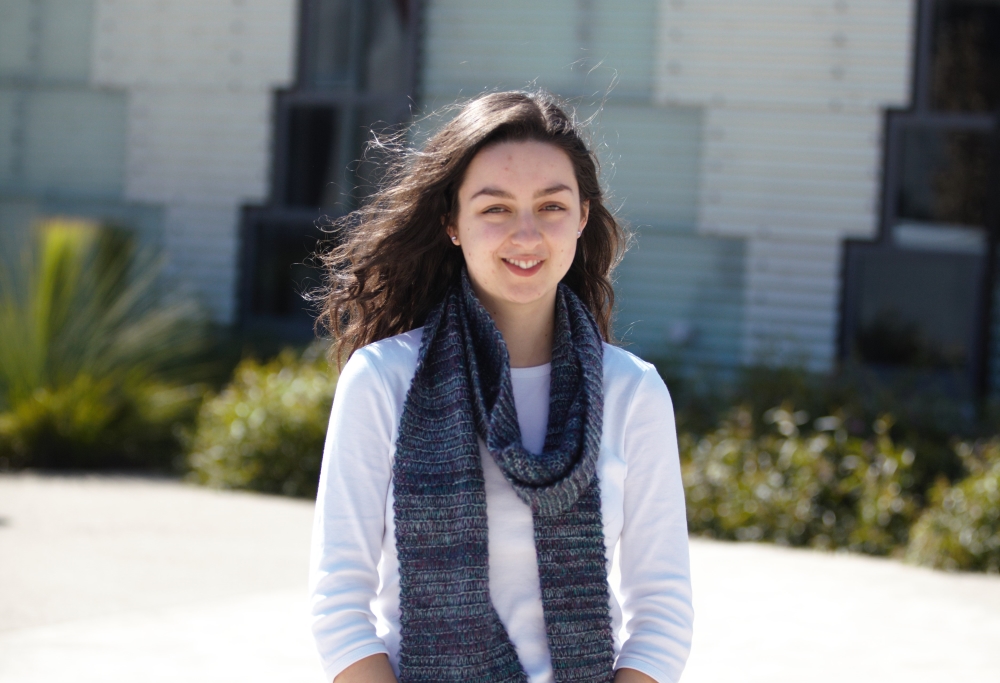Erin Westley

In 2016 ANU undergraduate Erin Westley was awarded the ANU Hambley Prize. Established in 1975, the Prize is given to an undergraduate student who achieves the best result in one year in two Chemistry courses. For a student who didn’t even intend to study chemistry when she started, for Westley the award was quite an achievement.
“I started off wanting to do genetics, actually,” Westley explains, “but the first-year chemistry programme was just so good that I ended up just sticking in chemistry.”
Unlike other courses, Westley has found that her chemistry classes provided her opportunity to explore scientific concepts in depth.
“I find the content really just very interesting and I particularly enjoy the way the content is taught in comparison to other science courses, where I found that I had to learn through memorization. In chemistry I feel like after I come out of a course I've got an understanding of certain concepts, which I can then apply to scenarios that I haven't seen before. This gives me better skills that I can apply, rather than just memorising a bunch of facts.”
These theoretical approaches has been useful in the two research projects Westley has already been a part of.
“I’m doing a research project in the lab working on total synthesis of natural products,” Westley explains. “I'm working on total synthesis of a particular natural product, which is biologically important, but the current synthetic methods that they have to make it are quite poor.
“What we’re trying to do is learn from the experience of those people who tried to make that compound through the '70s and '80s. We’re trying to then think of how modern techniques that we have developed since then can be used to make that synthesis better and shorter. We then hope to apply that to a whole range of natural products.”
Her second project was in a completely different field, working on anti-doping in horse racing.
“Over the summer I did a project with a different group. They work on anti-doping research in horse racing. The idea is that if we can make steroid metabolites, we can characterise them and use them as a target in a urine sample. If someone takes steroids, the body will metabolise them, and then that'll mean that it can be soluble in the urine and excreted.
“While the concentration of the parent steroid in the urine is low, the concentration of the steroid metabolites is much higher, so we can actually make those steroid metabolites and use different analytical techniques to characterise those and make a steroid fingerprint, if you like. Based on that we can screen horse’s urine and hopefully be able to not just detect the parent, but also the steroid metabolites, which would hopefully give a more efficient and more sensitive method for detecting doping in sport.”
Given all her hard work, being awarded the AN Hambley Prize was a nice boost for Westley, and not just because of the money.
“I did get a bit of money, which is really good. That's gone towards me getting a new laptop, which is something that I really needed. So that's definitely very nice.
“But I think it was just mainly a kind of encouragement to me, because I don’t think I realised that I was doing that well. Obviously, I knew I was doing okay, but to have the school say, ‘You know, actually, you're doing really well’, that just was really encouraging. I have invested a lot in my education and my education is very important to me, so it encouraged me to keep going and to work even harder this year.”
Westley intends to keep up that hard work, planning to do honours at the end of her degree. With her experience she already feels like she is prepared to get going.
“The fact that as an undergraduate, as a second year, I could do a research project with these big academics and these big research groups is not something that I thought I would be able to do at all. The fact that I have that opportunity gives me an idea of what's to come.
“I know what to expect because I've had the experience and I've already learnt some of the new techniques. I've learnt the chemistry that I need to get me through to make the transition smooth with honours and a PhD or whatever I decide to do. That's really cool.”
